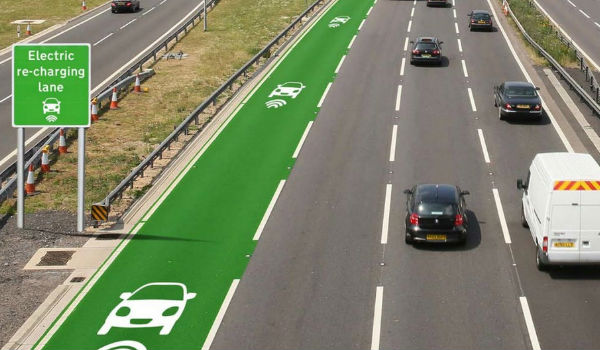Off-road testing of electric auto wireless charging given go ahead
It seems like it has been a success, as the government has announced that off road trials for these electric motorways will begin later this year.
It has already completed a feasibility study and is now asking companies to tender bids to host off-road trials.
Pointing out improvements in battery technology, Nieuwenhuis questioned whether there would ever be a need for such roads.
The UK plans to add plug-in chargers every 20 miles along highways, so drivers don’t have to worry about getting stranded on a road trip. The British government has committed £500 million over the next five years to keep Britain in the lead in this sort of tech.
“What has been committed to is that by 2016 or 2017 we will hold off-road trials – in other words not on a public road”, Stuart Thompson, a spokesman for Highways England, told the BBC. As long as there are roads equipped with the technology along the way, a person could theoretically drive across an entire continent without stopping.
Cables buried underneath the highway would generate electromagnetic fields that could be picked up by a receiver in the vehicle and transformed into electric power. A vehicle that utilized both wireless transfer charging and solar power would be literally unstoppable once the proper infrastructure is in place. It’s not yet clear how much of a charge the tarmac is going to provide, but it would certainly increase the amount of time cars could last between full charges at home or a designated charging station. The goal is to help drivers with electric and hybrid cars avoid frequent stops to recharge their vehicles.
The potential to recharge low emission vehicles on the move offers exciting possibilities.
Mike Wilson, Highways England chief highways engineer, commented: “The off road trials of wireless power technology will help to create a more sustainable road network for England and open up new opportunities for businesses that transport goods across the country”.
Similar technology is already being used in South Korea, where there is a seven-mile stretch of road that charges electric buses as they pass over it.








